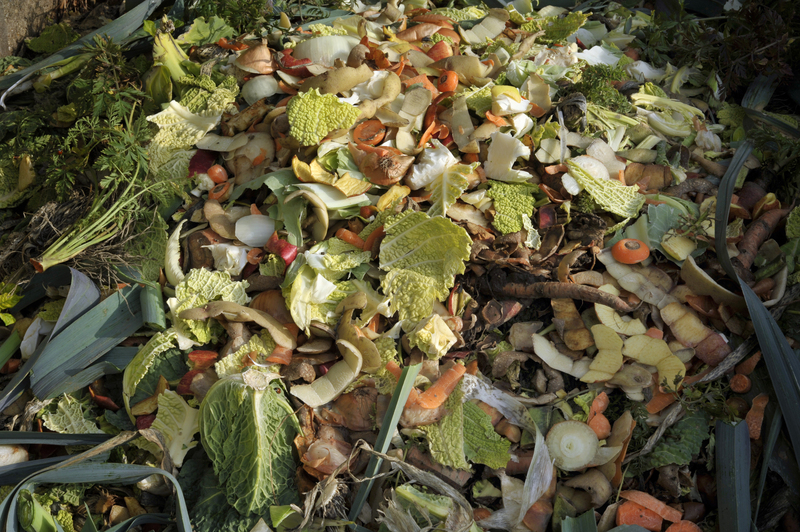Advancing Workplaces: Efficient Strategies to Reduce Office Waste
Modern businesses are under increasing pressure to operate sustainably. As environmental concerns rise and customers value corporate responsibility more than ever, it's time for companies to reassess their practices--particularly when it comes to office waste. Reducing office waste not only benefits the planet, but also saves costs, boosts employee morale, and strengthens brand reputation. In this comprehensive guide, we'll explore innovative, actionable strategies to advance your workplace by minimizing waste and maximizing efficiency.
Why Office Waste Reduction Matters
From paper to plastic and electronics to food scraps, offices generate significant quantities of waste daily. According to the Environmental Protection Agency (EPA), offices in the U.S. contribute millions of tons of waste each year, much of which ends up in landfills or incinerators. The environmental footprint of such waste is enormous, impacting air and water quality, wildlife, and contributing to climate change. Advancing workplaces through efficient waste reduction strategies is thus a necessity for any forward-thinking company.
- Environmental Impact: Office waste contributes to pollution, resource depletion, and carbon emissions.
- Economic Savings: Reducing waste can mean cutting costs on raw materials, disposal, and procurement.
- Corporate Image: Sustainable practices enhance your company's reputation internally and externally.
- Employee Engagement: Waste reduction initiatives motivate and involve your workforce in meaningful ways.

Comprehensive Strategies for Reducing Office Waste
1. Go Paperless or Use Less Paper
Traditional offices are notorious for paper waste. Digital transformation has made it easier than ever to reduce paper use dramatically. Try implementing these office waste reduction tips:
- Embrace digital workflows and cloud-based document sharing platforms.
- Encourage double-sided printing by setting it as default on all printers.
- Switch to electronic invoices, pay slips, and memos.
- Reuse paper for internal notes or drafts; designate a tray for reusable sheets.
- Add paper recycling bins beside each desk or shared workspace.
2. Rethink Office Supplies and Procurement
Reducing waste starts long before it reaches the bin. Responsible procurement is essential for a low-waste office.
- Buy recycled or refurbished office supplies when possible.
- Choose minimal packaging or ask vendors for eco-friendly alternatives.
- Order only what you need and use inventory tracking to minimize surplus.
- Select high-quality, durable supplies to avoid frequent replacements.
3. Implement a Recycling and Composting Program
No matter how hard you try, some waste is inevitable. But with the right systems, much of it can be diverted from landfill.
- Set up clearly labeled recycling stations for paper, plastics, metals, and e-waste.
- Educate employees on what can and cannot be recycled in your locality.
- Add food composting bins in lunch areas for organics like coffee grounds and fruit peels.
- Partner with specialized recyclers for hard-to-recycle materials (e.g., batteries, electronics).
4. Promote Reusable and Eco-Friendly Alternatives
Many disposable products commonly found in offices can be replaced with reusable or eco-friendly substitutes. Consider the following:
- Encourage reusable mugs and water bottles by providing branded options to staff.
- Install filtered water dispensers to reduce reliance on bottled water.
- Stock kitchens with durable plates, cups, and cutlery instead of single-use items.
- Choose compostable or biodegradable snacks and coffee pods.
5. Reduce Single-Use Plastics and Packaging
Modern workplaces often rely on convenience packaging, but small changes make a big difference. Here's how to avoid wasteful products:
- Ban single-use plastics such as straws, stirrers, and utensils in office kitchens.
- Encourage employees to bring lunch in reusable containers.
- Work with suppliers to minimize packaging or use recyclable options.
- Choose bulk purchasing for pantry and cleaning supplies.
Maximizing Employee Engagement for Sustainable Success
Successful workplace waste reduction relies on the commitment of your workforce. Employees are the heart of every sustainability initiative, so involve them early and often.
Form a Green Team or Sustainability Committee
- Recruit passionate staff volunteers to champion green efforts.
- Assign roles, set measurable goals, and celebrate milestones.
- Empower the committee to propose and test new waste-reduction ideas.
Educate and Motivate Staff
- Host waste-awareness workshops and eco challenges.
- Distribute tips via emails, posters, and digital boards around the office.
- Recognize departments or individuals who make standout contributions to waste minimization.
Incentivize Green Behavior
- Offer rewards such as gift cards, an extra day off, or donations to environmental causes.
- Hold friendly competitions (e.g., which team recycles the most or cuts out the most paper use).
Tackling E-Waste: Safe and Sustainable Solutions
Offices are notorious for generating heaps of electronic waste--from old computers to spent batteries and cables. E-waste is hazardous, containing toxins that pollute soil and water if disposed of improperly.
- Partner with certified e-waste recyclers who safely process electronics.
- Donate functioning equipment to schools or non-profits in need.
- Host annual office e-waste drives to collect unused electronics from staff and their families.
- Establish clear policies for the purchase, life-cycle management, and disposal of IT equipment.
Sustainable Office Design to Prevent Waste
The very design of your workspace can support or hinder your efforts to advance your workplace and reduce office waste. Smart design choices can make sustainable behaviors the path of least resistance.
Adopt Flexible and Collaborative Spaces
- Open, shared workstations reduce the need for unnecessary individual equipment and storage.
- Modular furniture can be reconfigured instead of replaced as needs change.
Integrate Waste-Reduction into Office Fit-Out
- Use recycled or upcycled materials in office renovation or fit-outs.
- Install energy- and water-efficient appliances to reduce utility waste as well as material waste.
- Place recycling, composting, and landfill bins together with clear signage to boost correct usage.
Food Waste: Addressing the Hidden Culprit
Lunchrooms, cafeterias, and meeting spaces generate a surprising amount of food waste. Here's how to minimize it:
- Encourage employees to plan meals and minimize food brought from home that won't be eaten.
- Set up a food-sharing shelf for leftovers or unopened snacks.
- Partner with local charities to donate surplus catered or event food.
- Establish a composting program for coffee grounds, fruit peels, and other organics.
- Educate employees about the impact of food waste on the environment.
Leveraging Technology to Reduce Office Waste
Technology is a powerful enabler for efficient office waste reduction. By going digital, you can drastically reduce not only paper use but resources spent managing and storing materials.
- Use digital signatures to eliminate printing contracts or agreements.
- Implement workflow automation software to streamline document approvals and archiving.
- Adopt project management apps to minimize printed meeting notes or plans.
- Utilize cloud storage to reduce the need for physical filing cabinets and supplies.
- Analyze waste data with smart sensors and IoT devices to monitor and optimize waste disposal.
Measuring and Reporting Office Waste Reduction Progress
You can't manage what you don't measure. Successful reduction of office waste begins and ends with diligent tracking and transparent reporting.
- Conduct an initial waste audit to identify where and how most waste is generated.
- Establish KPIs--such as pounds of waste per employee, recycling rates, or cost savings--to track progress.
- Share results internally in newsletters or dashboards to motivate teams and spotlight success stories.
- Publicly report performance in sustainability or CSR reports to build trust with customers and stakeholders.
Innovative Ideas for Continual Waste Reduction
The best workplaces continuously innovate to advance their sustainability efforts. Here are some novel ideas:
- Host "Zero-Waste Days," challenging staff to bring nothing disposable to work.
- Organize swap stations for office supplies, so unwanted folders, pens, or gadgets find new owners instead of landfill.
- Incorporate upcycling workshops into team-building events.
- Partner with local artists or charities to repurpose office waste creatively.
Common Challenges and How to Overcome Them
Even the most determined companies encounter obstacles while implementing office waste reduction strategies. Here's how to overcome common barriers:
- Lack of Awareness: Combat this by ongoing education and clear communication.
- Resistance to Change: Involve employees in solutions, reward participation, and demonstrate early wins.
- Insufficient Infrastructure: Invest in the right bins, signage, and vendor relationships for long-term success.
- Outdated Systems: Regularly review procurement and waste contracts for opportunities to update and improve.

The Business Benefits of Reducing Office Waste
- Cost Reductions: Less waste means lower disposal fees and less frequent supply purchases.
- Compliance: Adherence to environmental regulations and avoidance of fines.
- Brand Loyalty: Customers and clients are increasingly faithful to environmentally responsible companies.
- Talent Attraction and Retention: Eco-conscious workplaces appeal to top talent, especially Millennials and Gen Z.
- Innovation: A culture that embraces sustainability tends to foster creativity and progress across the board.
Conclusion: Shaping the Future with Sustainable Workplaces
Advancing your workplace through efficient office waste reduction strategies is not just an environmental imperative--it's a business advantage. By rethinking procurement, redesigning workspaces, empowering employees, and embracing technology, you can foster a culture of sustainability that benefits your bottom line and the world at large. Take the time to assess, act, and innovate--because a greener office is the first step toward a brighter future for everyone.
Are you ready to transform your office? Start by determining where waste happens most--and involve your team in building a customized, impactful strategy. Every action, no matter how small, counts towards a healthier planet and a more successful business.